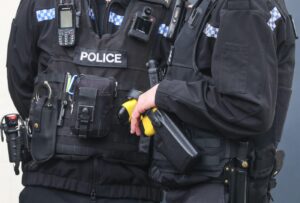Police across UK equipped with live facial recognition bodycams
Published on 27 November 2023

'Live facial recognition is a dystopian mass surveillance technology which turns us all into walking ID cards,' one privacy group warned
Reports Mark Wilding for Liberty Investigates and Cahal Milmo for the i.

